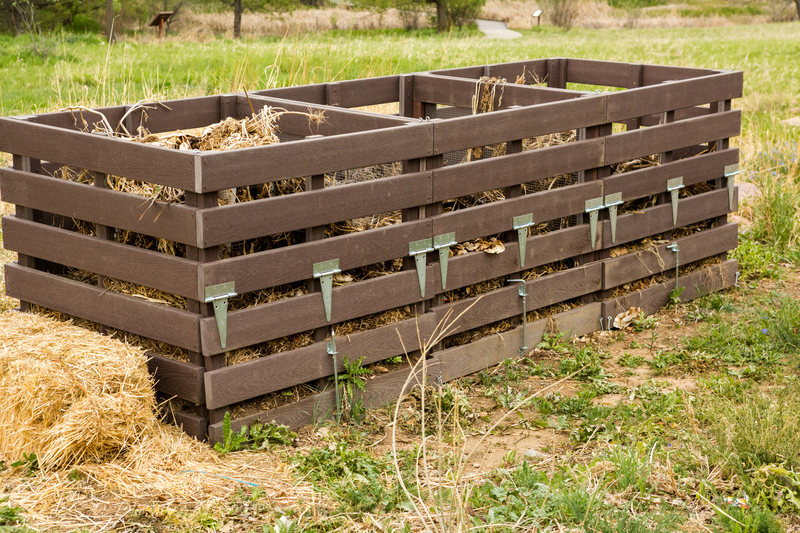Master the Art of Skip Hire: Essential Dos and Don'ts
Are you planning a home renovation, garden overhaul, or an office clear-out? Efficient waste management is key, and mastering the art of skip hire can make the difference between a chaotic site and a stress-free experience. Whether you're a first-timer or seasoned pro, understanding the essential dos and don'ts of skip hire can help you save money, avoid legal troubles, and manage your waste responsibly. In this comprehensive guide, we'll break down skip bin rentals, cover best practices, and answer common questions to help you hire a skip smartly and safely.
Why Skip Hire Matters: A Brief Overview
Skip hire services are designed to provide an easy, efficient, and environmentally friendly way to deal with large volumes of waste. From household clean-outs to commercial construction projects, skips help to dispose of rubble, garden waste, general rubbish, and even hazardous materials (with the right permits). Understanding skip hire regulations and how to get the most from your rental are essential if you want to cut costs, stay safe, and minimize your impact on the environment.
Main Benefits of Choosing a Skip Hire Company
- Convenience: Skips are delivered and collected at your location--no need to visit the local tip.
- Variety of sizes: There's a skip for every project, from mini skips for small jobs to maxi skips for large renovations.
- Environmental responsibility: Most waste is sorted and recycled, reducing what ends up in the landfill.
- Legal compliance: Skip hire companies are licensed to handle and dispose of waste properly.

Essential Dos of Skip Hire: How to Get it Right
To make the most of your skip hire experience, keep these essential dos in mind:
1. Do Assess Your Waste Type
Before you book your skip, identify the types of waste you need to dispose of. Typical skip companies classify waste into categories such as:
- General household waste (e.g., furniture, clothing, toys)
- Builders waste (e.g., rubble, bricks, concrete)
- Green or garden waste (e.g., soil, grass, branches)
- Mixed waste (a combination of various types)
*Special waste*--including asbestos, chemicals, electronic items, tires, or medical waste--usually requires special permits or disposal processes. Always ask your skip hire provider about restrictions, as improper disposal can lead to hefty fines.
2. Do Choose the Right Skip Size
One of the most common skip hire mistakes is selecting the wrong size. Too small, and you'll need multiple hires; too large, and you're paying for unused space. Use these general guidelines:
- Mini skips: 2-3 cubic yards (ideal for small clear-outs)
- Midi skips: 4-5 cubic yards (kitchen or bathroom refits)
- Builders skips: 6-8 cubic yards (construction projects, larger renovations)
- Large/Maxi skips: 10+ cubic yards (commercial projects, bulky items)
TIP: When in doubt, go one size up. It usually costs less than hiring a second skip!
3. Do Plan the Skip Placement Carefully
Where you put your skip affects both convenience and legality. Ideally, the skip should be placed on private property, such as a driveway or firm surface. If you must put it on a public road or pavement, you'll need a skip permit from your local council.
- Make sure there is enough clearance for the delivery truck.
- Place boards underneath if the surface is delicate (to prevent damage).
- Keep it away from manholes, low wires, or obstructing traffic flow.
4. Do Fill Your Skip Efficiently
Skip space is valuable. To maximize capacity, load bulky and flat items first (like doors or boards), then fill gaps with smaller debris. Break down larger items where possible and don't overfill--waste should not exceed the top edge ("level load only" is standard). Skips filled above this line may not be collected or may incur a surcharge for safety reasons.
5. Do Recycle and Segregate Waste
Even though most skip hire companies sort waste at their depot, you can help by segregating recyclables. Some providers offer separate skips for specific materials (such as metal, wood, or soil) at a reduced rate.
- Keep garden waste free of plastic or bricks.
- Separate clean rubble from general rubbish for lower disposal costs.
- Set aside any hazardous or special waste and arrange collection with a licensed handler.
6. Do Understand Local Regulations
Every area has its own rules around skip hire, particularly relating to permits, permitted waste types, and collection times. Contact your local council or check online resources to ensure compliance. Not following regulations can result in hefty fines or your skip being removed prematurely.
Essential Don'ts of Skip Hire: What to Avoid
Avoiding common skip hire pitfalls saves time, money, and hassle. Here are the top don'ts to keep in mind:
1. Don't Overload the Skip
Overfilling is unsafe and illegal. Transport regulations prohibit hauliers from moving skips with materials above the rim. Your provider may refuse collection or charge extra fees, delaying your project and costing more.
2. Don't Dispose of Prohibited Items
You cannot place everything in a skip. These items are typically banned:
- Asbestos
- Chemicals and solvents
- Batteries
- Paint tins and oils
- Electrical/electronic goods (fridges, TVs, etc.)
- Gas cylinders
- Tyres
- Liquids of any kind
- Medical waste
If unsure, ask your skip hire company for a full list before you start filling your skip. Responsible disposal is essential to protect the environment and yourself.
3. Don't Block Access or Exits
Skip placement should never obstruct driveways, emergency exits, or public rights-of-way. Poor planning can inconvenience neighbours, block vehicles, or lead to council fines or a forced removal. Always leave enough space for everyday use and access.
4. Don't Burn Waste in the Skip
Despite the temptation, burning rubbish in your skip is illegal and hazardous. This behavior releases toxic fumes, can damage the skip, and may result in penalties or additional costs to replace or repair the container.
5. Don't Forget the Permit (if Needed)
If your skip is placed on public land (roads, verges, pavements), a council permit is mandatory. Failing to obtain a permit can result in your skip being removed and incur fines. Some skip hire companies will arrange permits for you, while others require you to organize it yourself--always check during booking.
6. Don't Ignore Collection Times or Extending Hire
Skip hire periods are typically 7-14 days. Don't exceed this without notifying your provider, as additional daily charges may apply. Plan your project timeline honestly, and keep the skip area clear for safe collection.
Step-by-Step: How to Hire a Skip Like a Pro
Ready to hire a skip? Here's a quick step-by-step for a smooth, efficient experience:
- Define your project: Estimate how much and what type of waste you'll generate.
- Contact skip hire companies: Get several quotes, ask about skip sizes, permits, restrictions, and reviews.
- Book your skip: Confirm the size, waste types, hire period, and whether the company will arrange the permit if needed.
- Prepare your site: Make space for delivery, consider protecting surfaces, and brief others on what can/can't go in the skip.
- Fill the skip: Load efficiently, keeping waste level with the top and avoiding prohibited items.
- Arrange collection: Contact the provider for timely removal to prevent overstay fees.
Tips for Reducing Costs When Hiring a Skip
- Organize your waste: Segregate and dispose of recyclables elsewhere where possible.
- Choose the right size: Bigger isn't always better--avoid paying for unused space, but don't book too small.
- Minimize skip hire duration: Only hire for the exact window you need.
- Share costs: Team up with neighbours or businesses for a shared skip hire.
- Check for hidden fees: Always ask if there are extra charges for overfills, restricted items, or late collections.

Frequently Asked Questions About Skip Hire
How much does skip hire cost?
Skip hire costs vary based on location, size, type of waste, and duration. As of 2024, most UK households can expect to pay between ?100-?300 for domestic skip hire. Larger and commercial skips or hazardous waste disposals will cost more.
Do I need a permit for my skip?
If your skip sits entirely on private property, no permit is required. If it's on the roadside or a public space, you'll need a local authority permit. Prices and terms vary by council, and permits typically last one to two weeks.
Can I put a mattress in a skip?
Most skip hire companies allow mattresses in skips for an extra fee. Always check first, as some companies or regions restrict bulky or hard-to-process items.
What happens to the waste after skip collection?
Reputable skip hire companies take the waste to a sorting facility, recycling as much as possible. Non-recyclable waste is sent to landfill or processed for energy recovery.
Is skip hire environmentally friendly?
Yes--especially compared to multiple car trips to the tip. Over 80% of skip waste is usually recycled. To be more eco-friendly, separate materials where possible and avoid mixing hazardous waste in general skips.
Conclusion: Skip Hire Made Simple
Hiring a skip needn't be complicated. By following the dos and don'ts covered in this guide, you'll make your project run smoother, cut unnecessary costs, stay within the law, and help the environment. Remember--choose the right skip hire provider, clarify what can and can't go in the skip, load efficiently, and always get a permit when required. With this knowledge, you'll truly master the art of skip hire!
If you're planning your next project, now you know how to hire a skip responsibly and efficiently. Contact a trusted skip hire company today for advice on skip size, waste segregation, and permits--so you can focus on what matters: finishing your project without a mess or a headache.
Need more expert advice about skip bins and waste management?
Check out our blog for more tips, local skip hire reviews, and resources on safe, sustainable waste disposal. Let's keep your clean-up simple--and our environment cleaner.